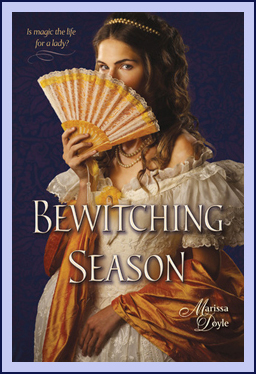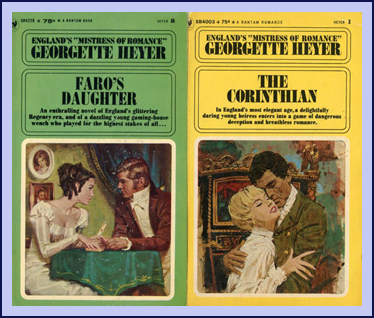Beth Deitchman
 Beth Deitchman wrote her first book in third grade, so you'd think she was always meant to be an author, yet she was diverted for some time by dreams of being a ballerina as well as the the manager of the Pittsburgh Pirates. She "entertained visions of wearing a black and yellow tutu with one black and one yellow pointe shoe while coaching." This dichotomy could be one of the reasons she was drawn to Jane Austen, heroines who embrace their girly side with balls and bonnets, yet have a will of steel underneath. Just think of Lizzy turning down Mr. Darcy and you know the will I'm talking about. Or even a ballerina dancing en pointe! Though I think we could also draw parallels to Buffy the Vampire Slayer, because Beth is a wannabe Slayer who is ALWAYS the first to like my odd musings from the Whedonverse on twitter. Beth went to college at UCONN and afterwards danced in a few modern companies in Boston until the desire for a "normal life" set in. Of course her new normal was graduate school at UMASS Boston. After receiving her MA in English she went on to get her M. Phil in English and Drama from Queen Mary College, University of London.
Beth Deitchman wrote her first book in third grade, so you'd think she was always meant to be an author, yet she was diverted for some time by dreams of being a ballerina as well as the the manager of the Pittsburgh Pirates. She "entertained visions of wearing a black and yellow tutu with one black and one yellow pointe shoe while coaching." This dichotomy could be one of the reasons she was drawn to Jane Austen, heroines who embrace their girly side with balls and bonnets, yet have a will of steel underneath. Just think of Lizzy turning down Mr. Darcy and you know the will I'm talking about. Or even a ballerina dancing en pointe! Though I think we could also draw parallels to Buffy the Vampire Slayer, because Beth is a wannabe Slayer who is ALWAYS the first to like my odd musings from the Whedonverse on twitter. Beth went to college at UCONN and afterwards danced in a few modern companies in Boston until the desire for a "normal life" set in. Of course her new normal was graduate school at UMASS Boston. After receiving her MA in English she went on to get her M. Phil in English and Drama from Queen Mary College, University of London.
Following that (seriously, did Beth do anything but school for a decade?) she finished her higher learning with a PhD in English at UC Davis to promptly give it all up two years later to be an actress in the Bay Area. Yet during all that time she was writing, "short stories about women trying to figure out their lives, endless examinations of my life and everything I felt was wrong with it, an undergraduate honors thesis, two Masters theses, a dissertation, and too many conference papers." But at least all that book learning has served her in good stead as she not only writes wonderfully magical Jane Austen continuations, Mary Bennet and the Bloomsbury Coven and Margaret Dashwood and the Enchanted Atlas, but is the founder of Luminous Creatures Press which she started in 2013 with Emily June Street. Additionally, Beth has co-authored two collections of short stories. Her
story, "La Voshnikaya," will appear in SQ Magazine's November 2016
issue. These days when she's not knitting or reading she's teaching Pilates at Flow Studio in Northern California where she lives with her husband Dave and dog Ralphie.
Question: When did you first discover Jane Austen?
Answer: I'm sure that I must have encountered Jane Austen's books as an undergraduate English major at the University of Connecticut, but I began loving them when I was a graduate student in London. I found Pride and Prejudice on sale in a bookstore and subsequently devoured it. After that, I re-read her books every few years—usually in the summer.
 Question: What do you think Jane Austen would think of her impact with so many literary offshoots, from parody to pastiche?
Question: What do you think Jane Austen would think of her impact with so many literary offshoots, from parody to pastiche?
Answer: I think she would be astonished and amused—possibly secretly pleased. Certainly she would write to her sister commenting on the phenomenon with her usual wit.
 Question: Where do you get your inspiration from?
Question: Where do you get your inspiration from?
The short answer: Anywhere I can find it!
The longer answer: When I wrote the short story that became my first Regency Magic book, Mary Bennet and the Bloomsbury Coven, I had no idea just how much Jane Austen-based fiction existed. I simply wanted to give Mary Bennet an adventure. I had developed a real fondness for Mary when I played her in a community theatre production of Pride and Prejudice. The poor girl was forever in her sisters' shadows. As I was working on Mary's story, I decided that it would be lovely to give a minor character from each of Austen's books a similar adventure and so the Regency Magic series was born.
Some of the characters are based on people I know. The woman who played Mrs. Bennet did such a beautiful job that I couldn't help but hear her voice as I wrote that character.
I have to admit that I got the idea for the Enchanted Atlas in my second Regency Magic book (Margaret Dashwood and the Enchanted Atlas) from Emma Thompson's 1995 film version of Sense and Sensibility. In a few scenes Margaret looks through an impressive atlas, although the one in my book is based more on the Baedeker travel guides from the nineteenth and early twentieth centuries—those famous books with the red covers.
Question: What makes the early 19th century mesh so well with magic?
Answer: For me there are two things that make the nineteenth century a great setting for magic: one, the notion that "the past is a different country: they do things differently there," L. P. Hartley wrote. Other fantasy authors invent their own worlds for working their magic. We have the past with all its differences from the world we know.
The nineteenth century also saw so much change with the Industrial Revolution, including so many technological innovations that could almost seem like magic. It's a time period ripe with potential for the fantasy writer.
Question: The world building and system of magic varies greatly in the regency fantasy genre, how did you go about creating yours?
Answer: I view my books as Jane Austen meets Harry Potter, so I took JK Rowling's world as a starting point for the magic system, and given that she is an avid Jane Austen reader, it makes a certain sense. There's a lovely whimsy to her magic alongside the darkness of her wizarding world. I've tried to achieve a similar balance. I've also taken the idea that you either have magic or you don’t, though I've not gone so far as to steal the word Muggle.
Much of my Regency Magic world came from a need to adhere to Regency customs. For example, I devised the Corridor of Doors (which allows sorcerers and sorceresses to travel quickly through London) because I wanted to get Mary from one part of London to another without drawing too much attention to her as a young woman wandering about alone. A few of the spells I've devised involve the word "please" for politeness. I'm also conscious of the strict boundaries between social classes in the Regency period, so there are rules about servants performing magic—although some of my characters with servants rightly believe that it's ridiculous to legislate who can and cannot perform magic.
 Question: If you had to choose between writing only period literature or only fantasy literature, which would win?
Question: If you had to choose between writing only period literature or only fantasy literature, which would win?
Answer: Goodness. That is a difficult choice. I suppose it depends on the day. Then again, most of my writing is actually not fantasy, and I tend to set my stories in the past, although only about thirty or forty years ago. I've set a lot of recent stories in the 1970s. I miss certain aspects of that period—especially the pace of life and the heaviness of certain objects, like telephones. Remember twirling the phone cord around your finger as you talked to your best friend? Or the brief satisfaction of slamming down the receiver? It's hard to get that with an iPhone. And without an iPhone, if you were lost, you had to consult a map (or atlas) or ask directions from an actual person. Perhaps I'm romanticizing the past, but I miss things like that.
 Question: Be honest, have you ever dressed up in Regency clothes just to pretend for a moment you are in the past?
Question: Be honest, have you ever dressed up in Regency clothes just to pretend for a moment you are in the past?
Answer: As I mentioned above, I played Mary Bennet a few years ago, so I got to dress up in Regency clothes several times a week. As far as costumes go, it was really comfortable. I've also worn costumes for plays based later in the nineteenth century, which is less comfortable. The corset and the underskirt make things a bit difficult for a twenty-first century woman. But, to tell the truth, while I enjoy visiting the past from time to time, I would not want to live there.




























































 Journey to Munich by Jaqueline Winspear
Journey to Munich by Jaqueline Winspear Britghton Belle by Sara Sheridan
Britghton Belle by Sara Sheridan London Rain by Nicola Upson
London Rain by Nicola Upson The Lost Cases of Bryant and May: London's Glory by Christopher Fowloer
The Lost Cases of Bryant and May: London's Glory by Christopher Fowloer Courtship and Curses (Leland Sisters Book 3) by Marissa Doyle
Courtship and Curses (Leland Sisters Book 3) by Marissa Doyle Betraying Season (Leland Sisters Book 2) by Marissa Doyle
Betraying Season (Leland Sisters Book 2) by Marissa Doyle Wink Poppy Midnight by April Genevieve Tucholke
Wink Poppy Midnight by April Genevieve Tucholke Bewitching Season (Leland Sisters Book 1) by Marissa Doyle
Bewitching Season (Leland Sisters Book 1) by Marissa Doyle Marissa Doyle was raised in a family of readers, which just might be a prerequisite for becoming a writer, I haven't looked into that. Growing up in Massachusetts, where she still lives, she has an affinity for the ocean and is happiest near or on the water, sailing Cape Cod. Being raised in Massachusetts means being steeped in this countries history, I mean, have you been to Boston? This might have a lot to do with her love of the past. In fact it was history, not writing, that she majored in in college, getting a degree in history and archaeology at Bryn Mawr College in Pennsylvania. Somehow she got distracted after graduation and the history she studied and the non-fiction she stills reads is now to inform her own writing of historical YA and fantasy for all ages. One piece of advice she's learned in her varied career is that "quite often, real life is far stranger and more wondrous than any fiction." It's these little oddities combined with real people and places that makes Marissa's writing stand out among typical Regency Genre fare.
Marissa Doyle was raised in a family of readers, which just might be a prerequisite for becoming a writer, I haven't looked into that. Growing up in Massachusetts, where she still lives, she has an affinity for the ocean and is happiest near or on the water, sailing Cape Cod. Being raised in Massachusetts means being steeped in this countries history, I mean, have you been to Boston? This might have a lot to do with her love of the past. In fact it was history, not writing, that she majored in in college, getting a degree in history and archaeology at Bryn Mawr College in Pennsylvania. Somehow she got distracted after graduation and the history she studied and the non-fiction she stills reads is now to inform her own writing of historical YA and fantasy for all ages. One piece of advice she's learned in her varied career is that "quite often, real life is far stranger and more wondrous than any fiction." It's these little oddities combined with real people and places that makes Marissa's writing stand out among typical Regency Genre fare.  Question: When did you first discover Jane Austen?
Question: When did you first discover Jane Austen? Question: Where do you get your inspiration from?
Question: Where do you get your inspiration from? Question: The world building and system of magic varies greatly in the regency fantasy genre, how did you go about creating yours?
Question: The world building and system of magic varies greatly in the regency fantasy genre, how did you go about creating yours? Question: Be honest, have you ever dressed up in Regency clothes just to pretend for a moment you are in the past?
Question: Be honest, have you ever dressed up in Regency clothes just to pretend for a moment you are in the past? The Winter Garden Mystery by Carola Dunn
The Winter Garden Mystery by Carola Dunn Sorcerer to the Crown (Sorcerer Royal Book 1) by Zen Cho
Sorcerer to the Crown (Sorcerer Royal Book 1) by Zen Cho Zen Cho was born and raised in Malaysia where she read a lot of 19th century British and North American fiction. While not containing the dragons and spaceships she likes, the books did encapsulate an alien world "featuring strange people who spoke a different language, had mysterious,
intricate social customs, and used outlandish technology like
post-chaises and handkerchiefs." She now lives in London, lucky her, not that I'm jealous or anything. OK, I totally am. Zen has been nominated for a plethora of awards, the most notable being the Pushcart Prize. She was also honour-listed for the Carl Brandon Society Awards which is part of WisCon and seriously, if this means she was in Madison at some time and I missed her I'm going to be very sad. Dammit she was! And I totally had a ticket for that year but couldn't make it at the last minute. I am now very sad. Back to Zen... her debut novel Sorcerer to the Crown, the first in a historical fantasy trilogy, was published last year. It is awesome.
Zen Cho was born and raised in Malaysia where she read a lot of 19th century British and North American fiction. While not containing the dragons and spaceships she likes, the books did encapsulate an alien world "featuring strange people who spoke a different language, had mysterious,
intricate social customs, and used outlandish technology like
post-chaises and handkerchiefs." She now lives in London, lucky her, not that I'm jealous or anything. OK, I totally am. Zen has been nominated for a plethora of awards, the most notable being the Pushcart Prize. She was also honour-listed for the Carl Brandon Society Awards which is part of WisCon and seriously, if this means she was in Madison at some time and I missed her I'm going to be very sad. Dammit she was! And I totally had a ticket for that year but couldn't make it at the last minute. I am now very sad. Back to Zen... her debut novel Sorcerer to the Crown, the first in a historical fantasy trilogy, was published last year. It is awesome.  Question: When did you first discover Jane Austen?
Question: When did you first discover Jane Austen? Question: Where do you get your inspiration from?
Question: Where do you get your inspiration from? Question: What makes the early 19th century mesh so well with magic?
Question: What makes the early 19th century mesh so well with magic? Question: The world building and system of magic varies greatly in the regency fantasy genre, how did you go about creating yours?
Question: The world building and system of magic varies greatly in the regency fantasy genre, how did you go about creating yours? Fire Touched by Patricia Briggs
Fire Touched by Patricia Briggs Fire Touched by Patricia Briggs
Fire Touched by Patricia Briggs Lady Midnight by Cassandra Clare
Lady Midnight by Cassandra Clare The Perfectly Proper Paranormal Museum by Kirsten Weiss
The Perfectly Proper Paranormal Museum by Kirsten Weiss Forest of Memory by Mary Robinette Kowal
Forest of Memory by Mary Robinette Kowal Sisi by Allison Pataki
Sisi by Allison Pataki


















